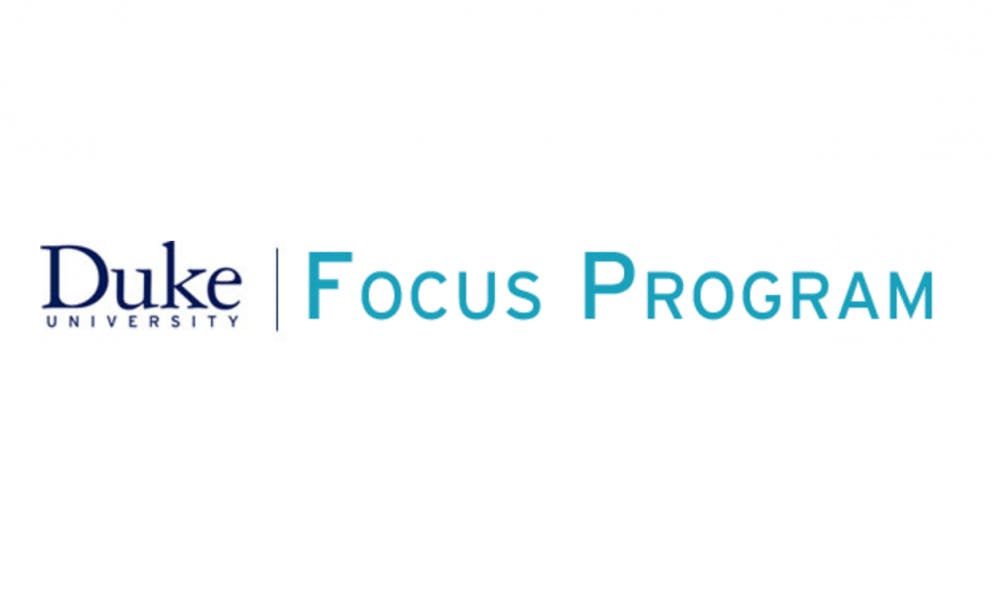One key aspect of the proposed Trinity undergraduate curriculum revamp is similar in part to the FOCUS program the University currently has in place. But how valuable have students found their FOCUS experiences?
The current draft of the new curriculum includes a proposed Duke Experience seminar—year-long classes that are intended to be “multidisciplinary team-taught” with “themed learning and living communities.” This is similar to the current FOCUS program, which features thematic clusters and shared living communities for first-years. But Edna Andrews, director of the program, said FOCUS will nonetheless remain a mainstay of first-year life.
“The FOCUS program was one of the inspirations for the new curriculum proposal, and it is certainly imagined to be integrated into whatever the first-year experience is,” Andrews said. “You don’t change something that provides what external reviews call a ‘transformational educational experience.’”
Students had mixed opinions on the value of the FOCUS program, with some saying it helped the adjustment to college. Others, however, were concerned that the courses are not synchronized with academic requirements and pose a significant opportunity cost.
First-year Rayan Tofique—who participated in the "Cross-Cultural and Cosmopolitan Medieval and Renaissance Worlds" cluster—said he has "mixed feelings" about his experience.
“I liked most of the class material, but I also felt there were more interesting courses or valuable classes I could have taken,” he said.
He noted that he would not recommend FOCUS to someone who wants to explore academically, and that the program is best for people whose interests closely align with their particular FOCUS cluster.
First-years Conrad Liu and Justin Sherman pointed out problems with how FOCUS classes failed to correspond with academic requirements. For example, Liu that one of his courses was not even coded, and that his professor failed to fix that despite repeated requests.
"I took the [economics] FOCUS with the intent to be an [economics and statistics] double major, hoping that this would give me an advantage," Liu said. "But none of the credits I received counted toward anything besides general education requirements."
Although he enjoyed most aspects of his FOCUS community, he said he would have quit had he known he could have fulfilled more prerequisites outside of the program.
After completing the "Visions of Freedom" cluster, Sherman said he disagreed with the current requirement that students in reading and writing-intensive FOCUS clusters must also take Writing 101 in the Spring.
"Based on conversations I've had with other students currently in Writing 101, and based on the syllabi I looked at before registering for Spring classes, it definitely seems like I did more writing in FOCUS than I will do in any of the Writing 101 classes," Sherman said. "The University sort of concedes this by recommending we don't take FOCUS and Writing 101 in the same semester, but they still, for some reason, require we take one after the other."
Despite its shortcomings, other FOCUS faculty and students did note its contribution to the first-year experience. With its interdisciplinary small-group seminar clusters and shared housing experiences, the program helps Duke students acclimate to college academics. For example, first-year Ketan Gupta described it as a "great jumpstart to one's time at Duke."
Tofique said he liked having weekly FOCUS group dinners, which he credited with solidifying the relationships between faculty and students in the cluster. In addition, first-year Linda Zhang—who completed the "Humanitarian Challenges" cluster—said she appreciated living close to her classmates.
“The residential arrangements bonded us like a family,” Zhang said. “We would walk back 'home' together after class. I really see my classmates as friends and family.”
Gupta agreed, adding that he enjoyed sitting around and discussing philosophy with his peers in his "Visions of Freedom" cluster at any point during the day.
Students suggested enhancing the FOCUS program through more group excursions. Events allowing students from different clusters to interact would also help the program as a whole, Zhang added.
“We want to ensure that the cluster and the courses are meaningful and formative for the students since this is one of their first educational experiences at Duke,” said Beth Sullivan, program director of the “Genetics and Genomics” cluster. “And importantly, we want to maintain a high standard of intellectual rigor and interaction that is a hallmark of the FOCUS program in general.”
Get The Chronicle straight to your inbox
Signup for our weekly newsletter. Cancel at any time.

